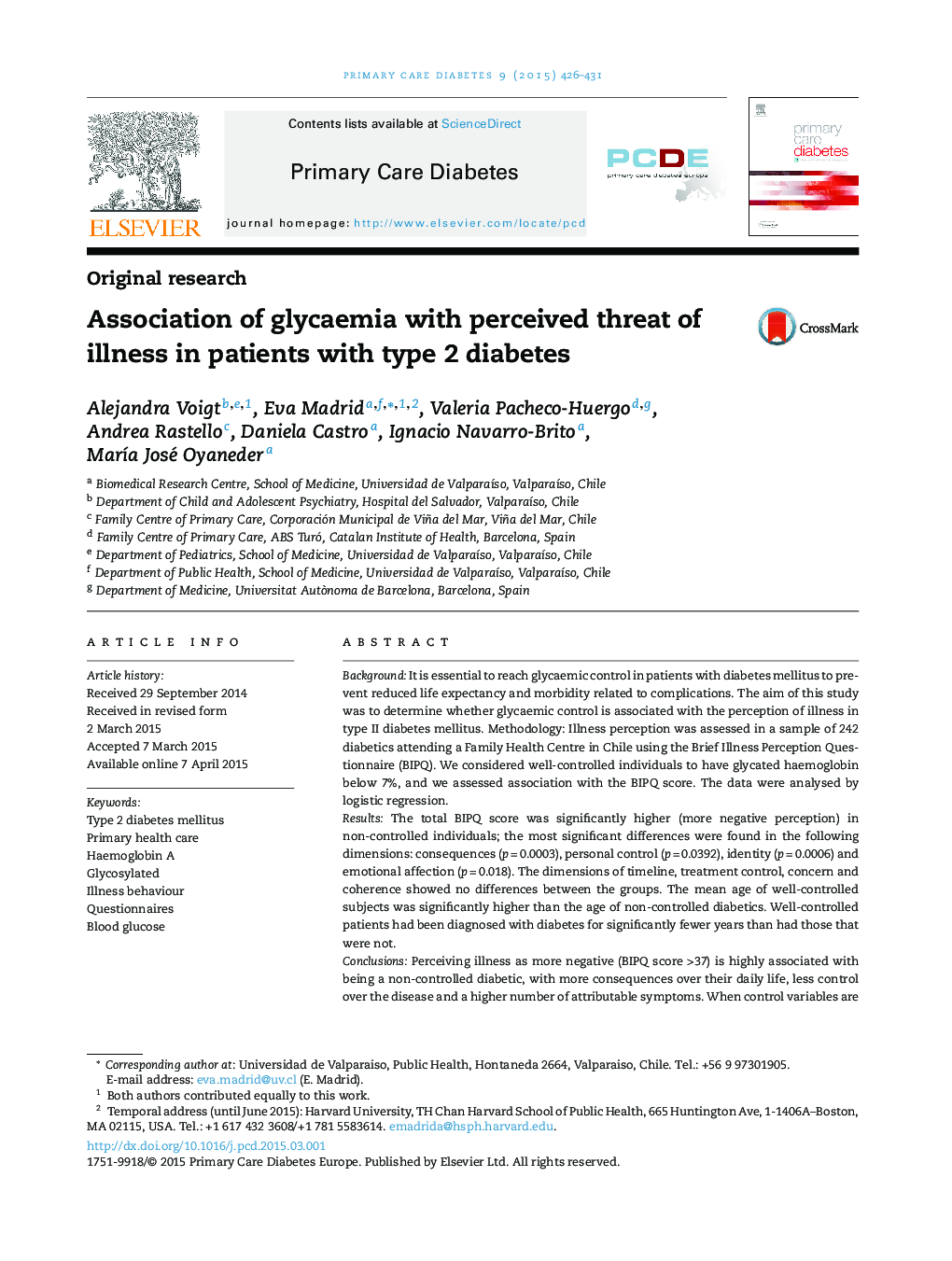| Article ID | Journal | Published Year | Pages | File Type |
|---|---|---|---|---|
| 2675430 | Primary Care Diabetes | 2015 | 6 Pages |
•We assessed Illness perception in 242 diabetics using Brief Illness Perception Questionnaire BIPQ.•BIPQ score showed that diabetics who have a more serious perception have poorer glycaemic control.•Serious and negative perception has adjusted OR 2.14 (CI 95% 1.17–3.92) to have Hb1ac over 7%.
BackgroundIt is essential to reach glycaemic control in patients with diabetes mellitus to prevent reduced life expectancy and morbidity related to complications. The aim of this study was to determine whether glycaemic control is associated with the perception of illness in type II diabetes mellitus. Methodology: Illness perception was assessed in a sample of 242 diabetics attending a Family Health Centre in Chile using the Brief Illness Perception Questionnaire (BIPQ). We considered well-controlled individuals to have glycated haemoglobin below 7%, and we assessed association with the BIPQ score. The data were analysed by logistic regression.ResultsThe total BIPQ score was significantly higher (more negative perception) in non-controlled individuals; the most significant differences were found in the following dimensions: consequences (p = 0.0003), personal control (p = 0.0392), identity (p = 0.0006) and emotional affection (p = 0.018). The dimensions of timeline, treatment control, concern and coherence showed no differences between the groups. The mean age of well-controlled subjects was significantly higher than the age of non-controlled diabetics. Well-controlled patients had been diagnosed with diabetes for significantly fewer years than had those that were not.ConclusionsPerceiving illness as more negative (BIPQ score >37) is highly associated with being a non-controlled diabetic, with more consequences over their daily life, less control over the disease and a higher number of attributable symptoms. When control variables are considered, a negative perception of diabetes has an adjusted OR of 2.14 (CI 95% 1.17–3.92) to have glycated haemoglobin above 7%.
